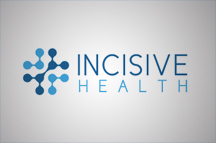Were you waiting for the rain instead of watching Twitter? Here’s our summary of some of the best of what you might have missed from the world of health.
- An interesting profile of John Curtice, the man behind the exit poll.
- Nick Timmins argues there is a case for action on top pay in the NHS, but the Prime Minister’s salary is a silly baseline.
- Direct access, clinically trained receptionists, social media and more. Some great ideas by @mellojonny for the future of general practice.
- 11 charts that show why Britain faces a carers crisis.
- An insight into why uptake of innovation is sometimes slow in NHS. 0.9% of user access NHSmail via Netscape!
- In celebration of diversity in the NHS #windrush.
- Is a rat better than a microscope at detecting tuberculosis?
- Interested in cancer intelligence? Catch up on the NCIN conference at #NCIN2015.
- The multiplicity of medical devices is not new. This is a 4.2kg surgical instruments catalogue.
- Researchers have found 55 diseases where there is a correlation of risk with month of birth.
- How does targeted therapy work against cancer? In lot’s of ways…
- Funny and sad in equal measure - 8 awkward intricacies of being kept alive by family and friends.
- Why do return trips seem shorter?
 From America:
From America:
- Women with Medicaid get less preventative health care.
- The hospitals in USA with highest mark ups for uninsured patients.
- Healthy eating in the US led to…sales of donuts increasing.
- How anti-vaxxers are using Twitter.
- Why treating cancer in pet dogs may help humans.
- What countries do Democrats and Republicans talk about?
And finally…
- A treatment from 1660 for freckles. Unsure whether this has been recommended by @NICEComms (via @RCPLondon)
In an NHS environment that is noisy, changing rapidly and where decision-makers are under intense pressure, policy communications need to be incisive to make an impact. Incisive Health knows how to cut through the noise and competing priorities to deliver results that enhance our clients' businesses and reputations and - ultimately - improve healthcare for patients.














